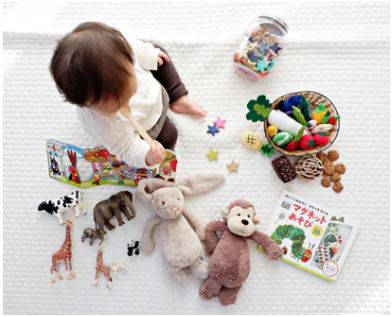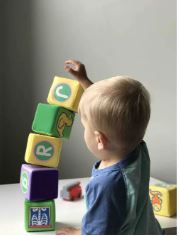
What is solitary play?
Solitary play or independent play is play that allows a child to entertain themselves and learn independence without interaction from adults or other children.
But doesn’t that mean I’m just ignoring my child while I engage in other tasks?
No! Solitary play is an important part of childhood development and allows children to develop independence, imagination, creativity, concentration, and problem solving skills.

Okay, solitary play is good, but now what?
Create a child safe zone for the play to happen. If you can designate a space that is free of hazards but within eyesight that would be best. Provide one or two open ended options for your child - too many options may actually overwhelm a child and lead to a less meaningful play experience. This can be a set of age appropriate blocks or even some kitchen items like Tupperware that can be stacked or sorted. Consider combining a few items to encourage imaginative scenarios for slightly older toddlers or preschoolers.
Can I get more information about solitary play?
- What is Solitary Play?
- Solitary Play in Early Childhood: Types, Benefits and Why It is Good for Kids
- Playing Alone Can Promote Creativity, Initiative, and Esteem
Mindful Moment
Take a moment to close your eyes and breathe slowly. Acknowledge your feelings both positive and negative. Breathe deeply as you accept that these are valid. Be patient with yourself.
 Youth Services Librarian Demitra
Youth Services Librarian Demitra

